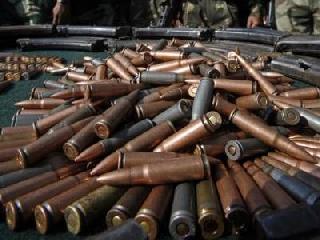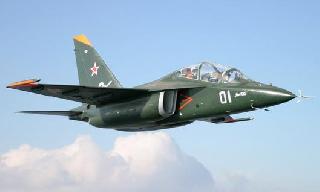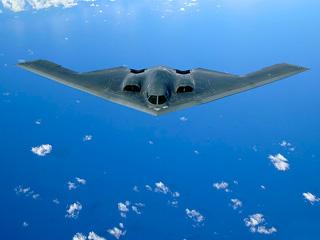
UNITED NATIONS (PTI): The draft of a UN arms treaty that would regulate the multi-billion-dollar global arms trade will not harm India's national interests, the US on Friday said, allaying New Delhi's concern over its text.
"While I appreciate the concerns that has been expressed very clearly by India's representative here, my own view is that this treaty will not be harmful to India's security and certainly not in any way harm the very strong bilateral relationship between India and the US," said Tom Countryman, head of the US delegation to the Arms Trade Treaty Conference.
Countryman was responding to questions on the concerns raised by India on the draft text of the treaty, which could not be adopted by the conference in the absence of consensus among its 193 nations; which was considered to be the first step towards regulating the $70 billion global arms trade.
Iran, Syria and North Korea opposed the final draft text on the pretext that it fails to ban sales of weapons to groups that commit "acts of aggression".
Now the proponents of the treaty have scheduled to put it to vote in the UN General Assembly next week.
India, which had worked hard during the negotiations, had expressed its deep concerns on the final draft.
In her intervention during the closing arguments, India's Permanent Representative to Conference on Disarmament, Geneva, and head of the Indian Delegation to the Arms Trade Treaty Conference Sujata Mehta said the final version fell short of India's expectations and that of other likeminded countries.
"At the commencement of this Conference India had made clear that the ATT should make a real impact on illicit trafficking in conventional arms and their illicit use especially by terrorists and other unauthorised and unlawful non-state actors. The provisions in the final draft on terrorism and non-state actors are weak and diffused and find no mention in the specific prohibitions of the Treaty," Mehta said in her intervention.
India, she said, has stressed consistently that the treaty should ensure a balance of obligations between exporting and importing states.
"India cannot accept that the treaty be used as an instrument in the hands of exporting states to take unilateral force majeure measures against importing states parties without consequences," she added.
"The relevant provisions in the final draft do not meet our requirements. There is a fundamental imbalance in the text which is flawed as the weight of obligations is tilted against importing States. As an importing state we will take measures to ensure that the treaty does not affect the stability and predictability of defence cooperation agreements and contracts entered into by India," Mehta argued
However, US officials - who played a major role in the drafting of the current text - tried to dispel India's concerns after the conference was over.
"In terms of India's concerns as a major arms importer, I first put it in this context that the United States and India has an extremely strong bilateral relationship. It is a multi-dimensional strategic partnership that includes solid co-operation of security matters including in defence trade and we recognize India's legitimate interest in providing for its national defence," Countryman told reporters during a conference call in response to a question.
"My own opinion is that this treaty is in no way threatens the security of supply for India. It is this treaty should make it harder for States that are serious abusers of human rights that use weapons against their own citizens, that are aggressive towards their neighbours that support terrorism - should make it harder for those states and those groups to get weapons. India is not in any of those categories," he said.
But Indian officials insisted that given its bitter past experience like the one during the Kargil war, New Delhi should not be part of any international treaty that tends to jeopardise its national interests.
"While India has negotiated in good faith and in an open and transparent manner with respect to our essential interests, the final draft has the tell-tale marks of behind- the-scenes carve outs of exclusive interests of a select few countries, such as egregiously excluding non-state actors or arms transfers as gifts or loans, thus seriously diminishing the value of a multilateral Treaty negotiated in the UN," Mehta said.
"We have stressed that universal adherence to this Treaty would not be possible unless all stakeholders were on board and this includes major exporting as well as importing states," she said.
Mehta said the final draft text will be examined carefully and in detail.
"India will undertake a thorough assessment of the ATT from the perspective of our defence, security and foreign policy interests.
"Our participation in this session does not in any way prejudice our position on the substantive aspects of the Treaty and should not be construed in any way as our endorsement. We would wish this to be reflected in full in the record of this meeting and annexed to the report of the Conference," she said.
 Previous Article
Previous Article Next Article
Next Article













The Indian Air Force, in its flight trials evaluation report submitted before the Defence Ministry l..
view articleAn insight into the Medium Multi-Role Combat Aircraft competition...
view articleSky enthusiasts can now spot the International Space Station (ISS) commanded by Indian-American astr..
view article